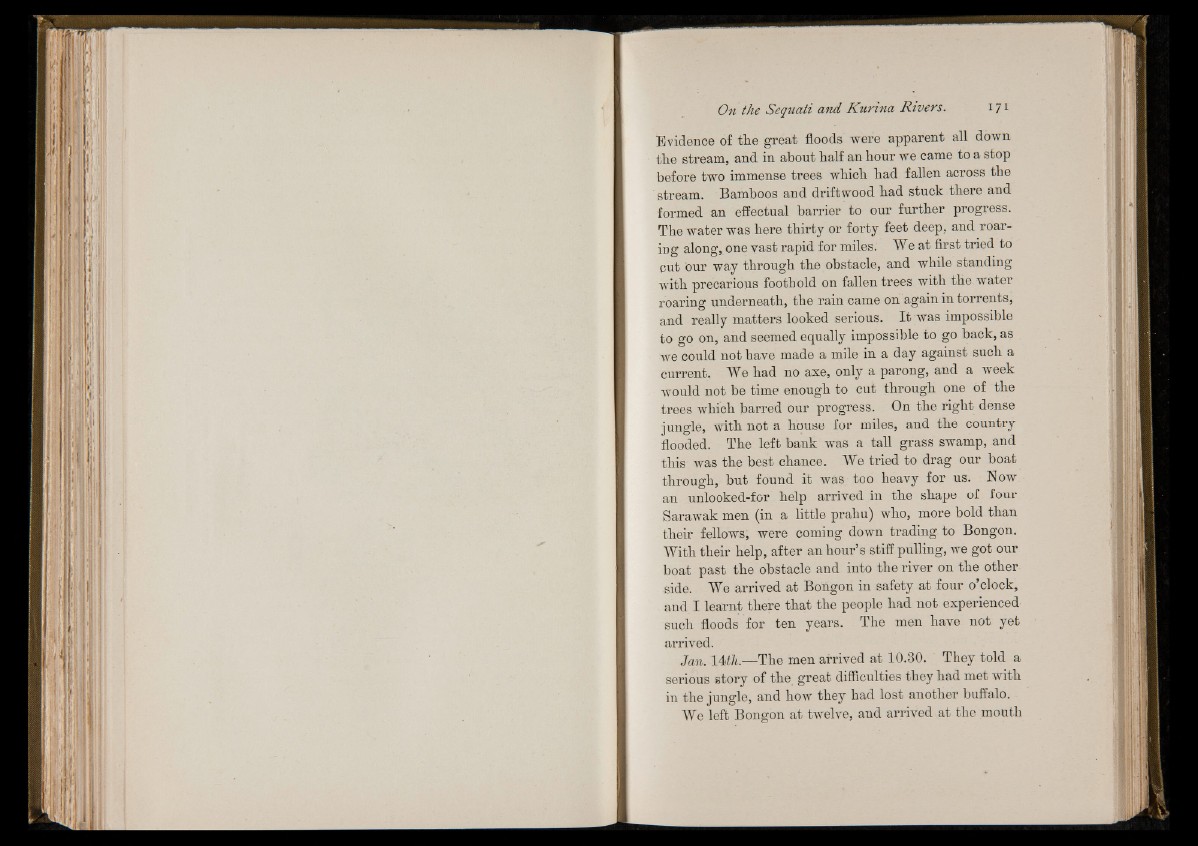
Evidence of the great floods were apparent all down
the stream, and in about half an hour we came to a stop
before two immense trees which had fallen across the
stream. Bamboos and driftwood had stuck there and
formed an effectual barrier to our further progress.
The water was here thirty or forty feet deep, and roar-
ing along, one vast rapid for miles. We at first tried to
cut our way through the obstacle, and while standing
with precarious foothold on fallen trees with the. water
roaring underneath, the rain came on again in torrents,
and really matters looked serious. I t was impossible
to go on, and seemed equally impossible to go back, as
we could not have made a mile in a day against such a
current. We had no axe, only a parong, and a week
would not be time enough to cut through one of the
trees which barred our progress. On the right dense
jungle, with not a house for miles, and the country
flooded. The left bank was a tall grass swamp, and
this was the best chance. We tried to drag our boat
through, but found it was too heavy for us. Now
an unlooked-for help arrived in the shape of four
Sarawak men (in a little prahu) who, more bold than
their fellows, were coming down trading to Bongon.
With their help, after an hour’s stiff pulling, we got our
boat past the obstacle and into the river on the other
side. We arrived at Bongon in safety at four o’clock,
and I learnt there that the people had not experienced
such floods for ten years. The men have not yet
arrived.
Jan. 14tli.—The men arrived at 10.30. They told a
serious story of the great difficulties they had met with
in the jungle, and how they had lost another buffalo.
We left Bongon at twelve, and arrived at the mouth